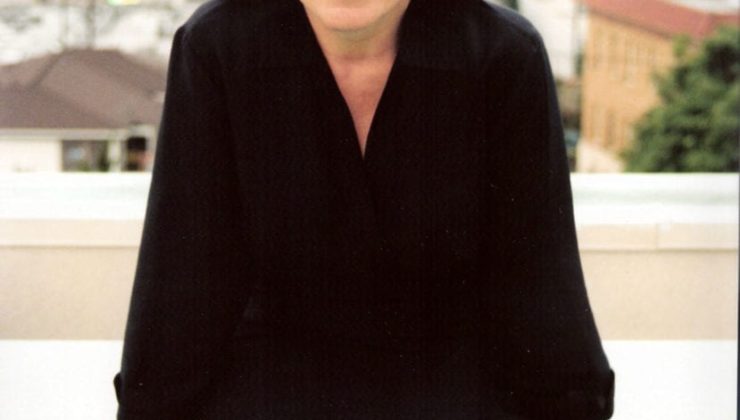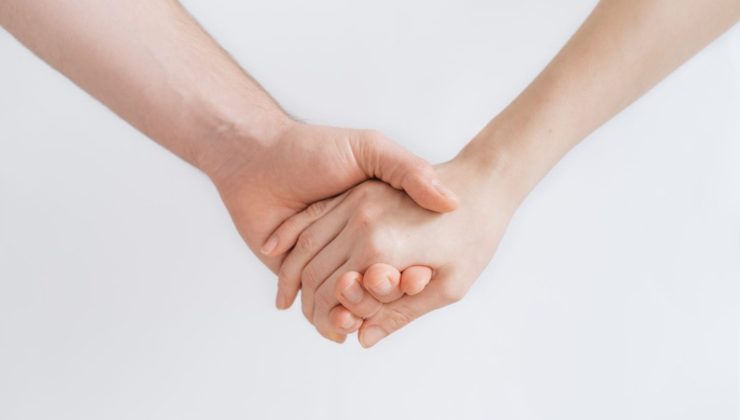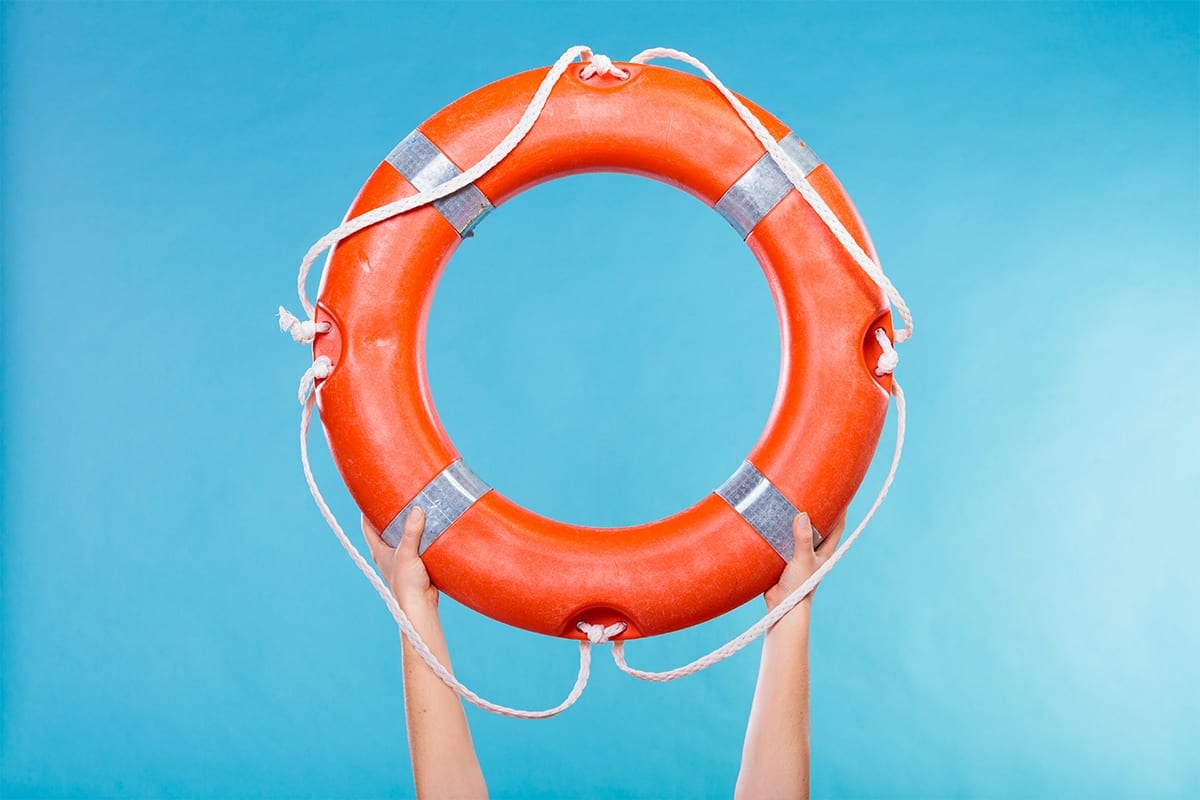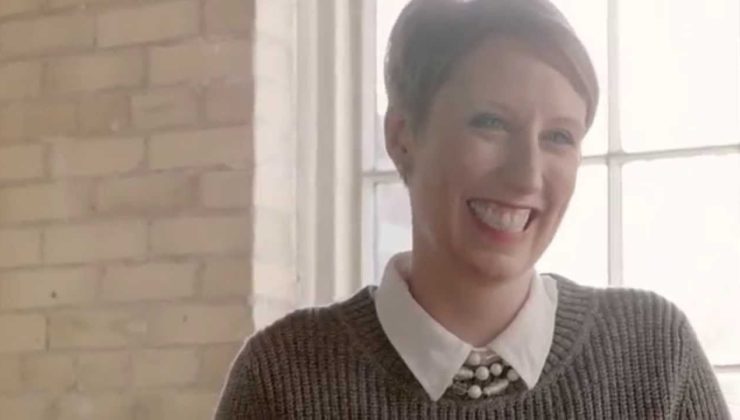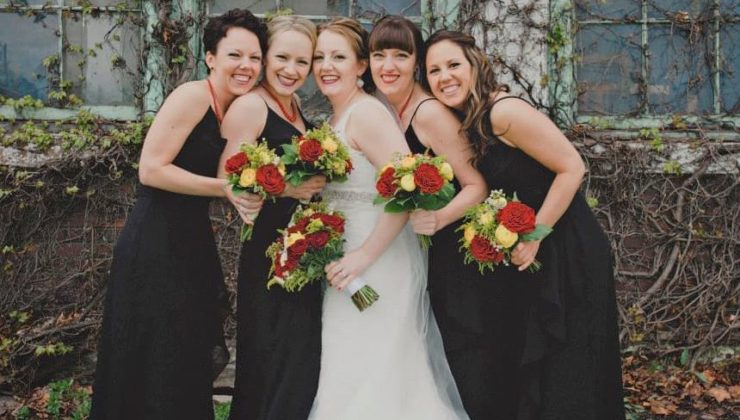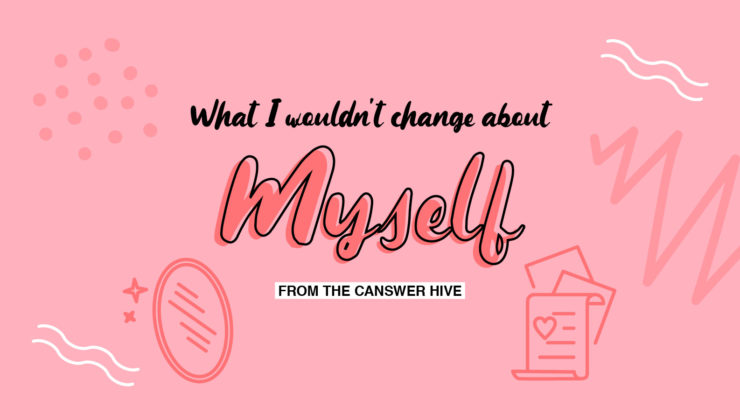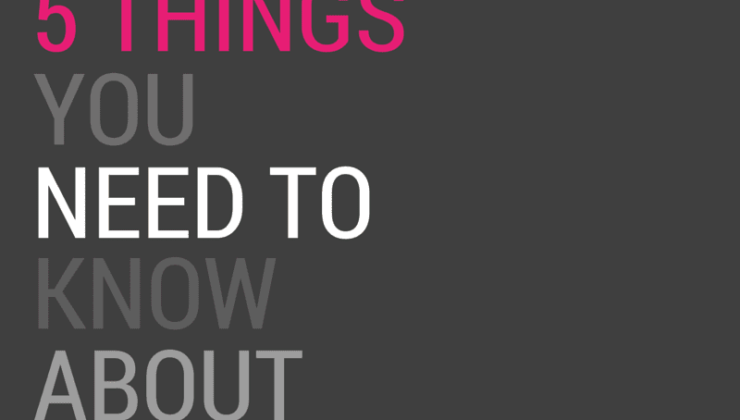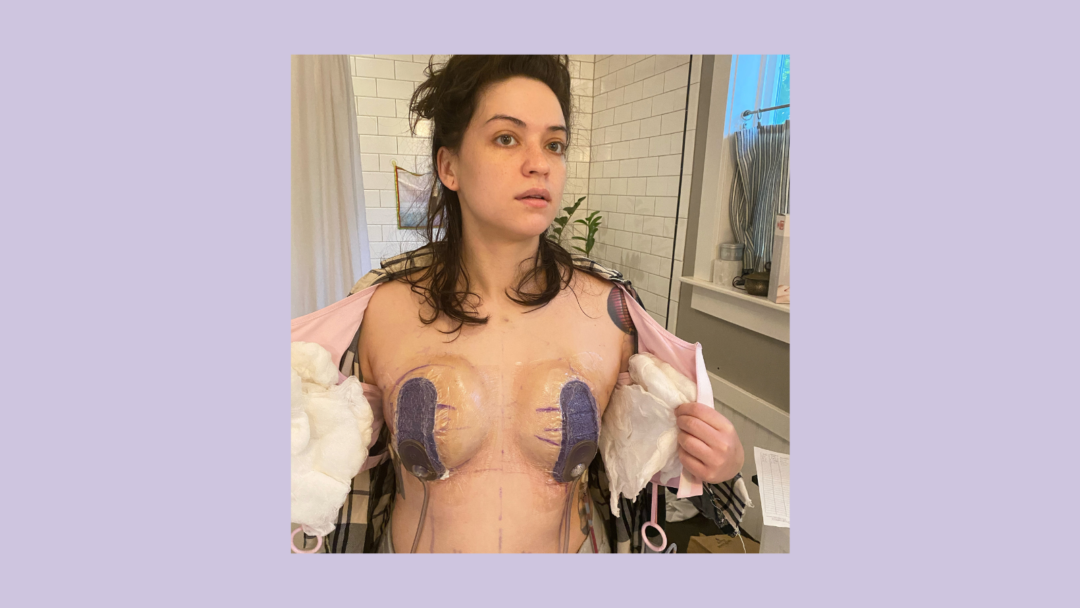
How Losing My Breasts Helped Me Heal My Relationship With My Mother
It had been years — five, to be exact — since I had seen my mother last. Those five years were spent playing catch-up, survivor style. Despite my depression leading me to drop out of college, I wound up building a successful career for my young self. While I wasn’t exactly the picture of mental health, I was considerably less chaotic than I had been in previous years. I was managing, and to me that was as good as thriving (even if my anxiety was at an all-time high). Walking away from my mother was the only way for me to get by. She was abusive, narcissistic, and hellbent on taking me down with her. When I was little, she would often remind me that you are what your mother is. She meant, of course, that I would always be Puerto Rican (even if only half), that I would always be her daughter, that we were bonded by the blood of our ancestors, that she existed within me and I within her. As I began to age, I worried that this also meant I was fated to a life of anger and sadness. It was all I saw in her, and when I looked in the mirror it was all that was staring back at me. Would I be bound to leave a trail of destruction behind me the same way she laid waste to everything around her? Before I was able to understand the intricacies of my identity, of her identity, I ran away from it as far as I could.
That fall of 2013, I received a call from a family friend that my mother had been diagnosed with breast cancer. She urged me that if ever there was a time for amends, it was now. Just in case. I sought the council of trusted friends and they all agreed: if my mother didn’t make it, I wouldn’t be able to live with the pain of not having tried to make it work. A few days later, I accepted her phone call. She cried and told me she did the best she could with the hand she was dealt. “I didn’t know how to be a good mom,” she said. I would replay that line over and over, like a skipping record in the back of my mind.
My mother lived a painful life. It took me many years to be able to piece together the intersections of her existence and how it was somewhat inevitable that she would re-enter the cycle of abuse as the abuser herself. She grew up in the projects of the South Bronx to parents who emigrated from Puerto Rico with only their native tongue, in search of more opportunity than the island could offer. She was repeatedly sexually abused by her own father who emotionally abused my Abuela up until the day he left the family. She was pregnant at nineteen by a man who had at least one other woman pregnant at the same time. He abandoned her, and she had no choice but to drop out of Lehman College to raise my sister on her own. Several years later, she became pregnant with me and gritted through countless microaggressions from white folks as she tried to assimilate in a better part of the Bronx, an experience that dehumanized her. As a single mother working as an EMT for FDNY (a job which, in New York City, was traumatizing enough most days), she traded nurturing my sister and I for working overtime to make sure we always had a roof over our head, food in our fridge, gas in our car. To her, successful parenting meant that we had all of the privileges and comforts she never had. Nothing else mattered.
I don’t recall a time when my mother ever told me that she loved me. I don’t think she knew how. Love just wasn’t a language in which she was fluent; what she lacked in affection, she made up for with ferocity. She would square up to men twice her size without hesitation, never once wincing. It’s what made her so good at her job, so able to save lives. She had already known the worst of human nature; it did not frighten her. People, myself included, often teetered between fearing my mother and trusting her completely, knowing she was always poised to enter battle. In my mother’s care there was safety from everyone but her.
Reluctantly, I made the journey back uptown to see her one Sunday afternoon after her lumpectomy. I knew immediately it was the wrong decision, the disquiet within me bubbling to the surface. The air of the tiny apartment I was raised in began to suffocate me; the walls swallowed me alive like when I was little. While it was clear to me that my mother was in need of care, she didn’t know how to be cared for, and I couldn’t be the one to provide that for her. We immediately fell back on our tried and true tropes: she, the wounded, explosively angry and self-obsessed; me, the anxious-avoidant child wondering what she did to deserve all that wrath and fury. How could I have allowed her to do this to me again? I had compromised myself completely, just in case. How could this be the right thing to do if it didn’t feel right inside me? I left the Bronx feeling raw and undone, as though everything I had made for myself was falling through the cracks. I was immeasurably scared that my mother might die of cancer, but worse, that I might die of a broken heart if I forced myself back into a situation that made me suicidal for the vast majority of my adolescence. So I walked away and chose not to look back. She pursued the remainder of her cancer treatment without me by her side. I spent my days pretending not to know that she was cutting off her breasts, that she was sacrificing the body that gave me life.
I would not see or speak to her again for another six years. Not until I was a mother myself and in a role I never thought I would consciously step into — one I wasn’t sure I knew how to navigate. “I don’t know how to be a good mom,” kept echoing in my head. I could feel my mother’s heart breaking when she spoke those words to me, but I couldn’t ignore the pain of having been the child who couldn’t be loved. Much like her, I never had the tools to care for another, no one to show me how it was meant to be. Still, I chose to surrender. To let motherhood soften me. It became the chance to reclaim what I was owed, to be the mother I always deserved to have, an invitation to begin anew.
One unremarkable Brooklyn afternoon, at the gentle request of my Abuela for her eightieth birthday, I sat beside my mother at lunch, baby and new husband in-tow. We never spoke of how many years it had been, or why we had to part ways. We didn’t bring up that I had moved across the country without telling her, had a baby without telling her. We didn’t discuss the heartache either of us had experienced, or dwell on time lost. Sitting at that table with her, I noticed that the quality of her light had suddenly shifted. In my absence, had she somehow softened, too? I sat in disbelief while she held my baby and regaled my husband with tales of being mistaken for my nanny because I was such a white child (an admission she would have never previously indulged). I listened curiously as she and my grandmother took turns recalling what it was like to raise me, reflecting on our lives together. Not with memories of our hardships, but with moments of sweetness. Memories of the beach and cherry helado, traversing the Bronx all summer long, and dominoes on the kitchen table. Watching her coo the pilon and manita songs over and over to my son, I felt almost as if she were singing them to me. The next time I saw her, she tearfully embraced me, told me that she loved me, and thanked me for giving her another chance.
In the late summer of 2020, after repeatedly miscarrying, I was unexpectedly diagnosed with BRCA2: a hereditary mutation in my genome that put me at exponential risk for breast and reproductive cancers. While my mother is a breast cancer survivor, I did not inherit the mutation from her. My mother’s cancer was ruled an environmental hazard of having been a first responder during 9/11. It appeared to be the will of the universe for us to have this point of connection. Having never been one to supply a soothing balm to any of my ails, my mother was seemingly the only one in my corner. When I told her the news of my diagnosis, she wrapped me in as much love as she could, in her own stunted way. I explained to her that I would be undergoing a prophylactic mastectomy, fearing she may reject me as I had once rejected her. But there was no rejection, no animosity. Maybe it was her way of showing me she understood me. A silent admission that she respected the choices I had to make, even the ones that came at her own expense. The surgery wasn’t all that bad, she promised me. When one of my oncologists needed to remove my uterus, she reminded me that I was still a wonderful mother and woman, even though I would never bear another child. She affirmed for me that I was making all the right decisions, decisions she would have never hesitated to make herself. If anyone taught me how to run towards the fire, it was her.
While other members of my family hemmed and hawed at getting themselves tested, denying any personal risk, my mother provided me with all of her cancer paperwork so that my oncologists would understand the full scope of how breast cancer may determine my future. “I want to be there for you,” she proclaimed. Words I never knew I longed for her to say. When my mother’s test results for BRCA came back negative, she admitted to me she wouldn’t have been able to live with having passed it on to me, after everything she had already put me through.
My mother once confessed to me that she used to sit in her car outside of our apartment building and fantasize about not coming home. About driving off and living a different life, leaving us behind. I don’t think a day has passed where I don’t question if motherhood ever brought my mother happiness. Did she ever look upon me the way I look upon my child? I am not certain I will ever have that answer. I don’t know how much it matters anymore. What I do know is that my mother’s light had been extinguished against her will, and love was often too great a burden for her to bear. The night before my hysterectomy, my Abuela told me that she too, had her uterus removed, just before I was born. She recalled that my mother had sat by her side in the hospital everyday for over a month. Stories of her being loving were so few and far between I had forgotten they ever existed. The day of my mastectomy, she nervously checked-in with my husband, looking for good news. I wondered if maybe my mother had spent these past years waiting for the opportunity to love and be loved; my diagnosis opening the door for her to reclaim something that had been taken from her, too.
I don’t forgive my mother. But with time, comes clarity. With space, compassion. I gave my mother another chance at love not because it was the right thing to do, or because I might one day have regrets, but because we both needed it, desperately. We may never fully repair, and I admit that boundaries may never come down. I might always be secretly waiting for her to flounder, just a little. I will always bear the scars of being my mother’s daughter. But when I look in the mirror at my reconstructed breasts, when I look into the eyes of the person I have become, I see all of things about myself that I feared were actually what gave me enough strength to make it this far. The best parts of my mother, the parts she was too scared to share with the world, were thriving inside of me. The parts that needed more time, more care, more protection. The parts of herself she wanted to preserve, because they deserved better, stowed within me. The ferocity she modeled for me, transformed. The love she could not give me, created within me. The lifetime of pain endured offering me grace to see this through. When I look in the mirror and see the body that carried and cared for my son, that has been carved up and battered, the body that survived, I feel gratitude. Gratitude that the cycle has ended here, with me.
You are what your mother is. — Megan Radich
Megan’s piece was originally self-published on Medium, and has been republished and featured here with permission.

